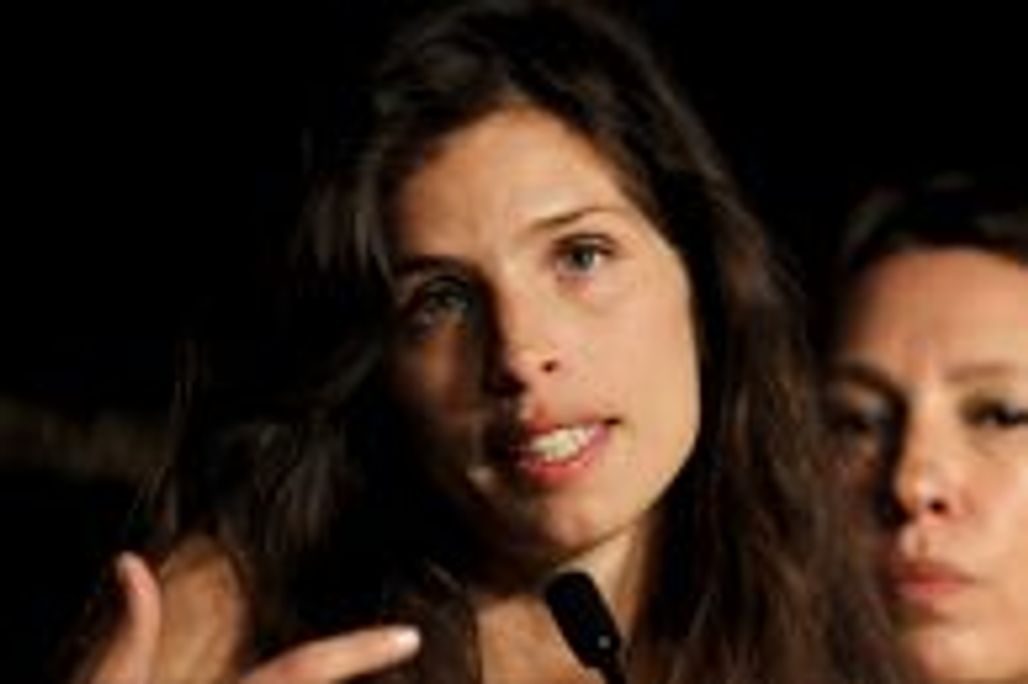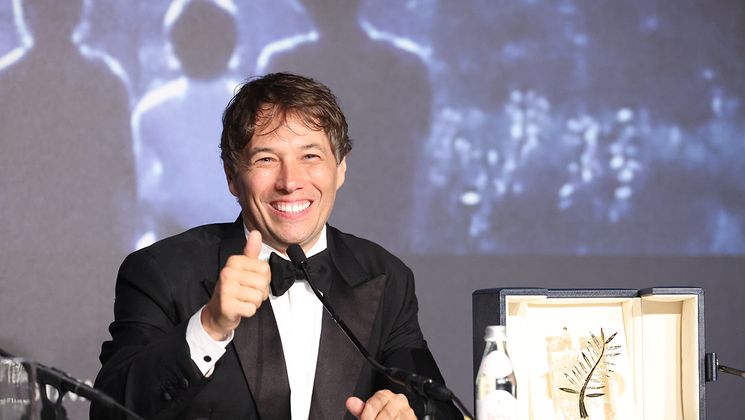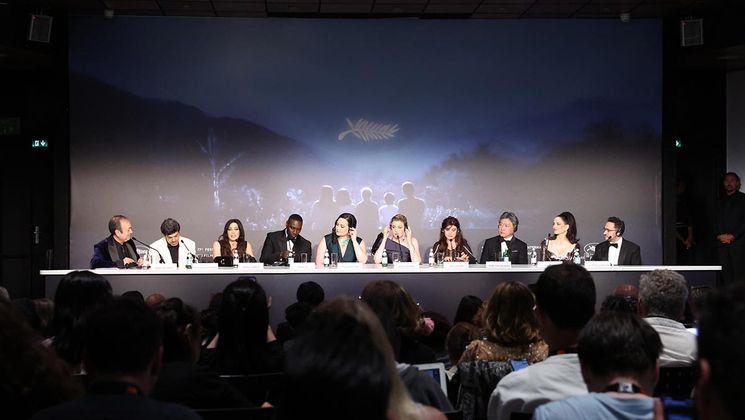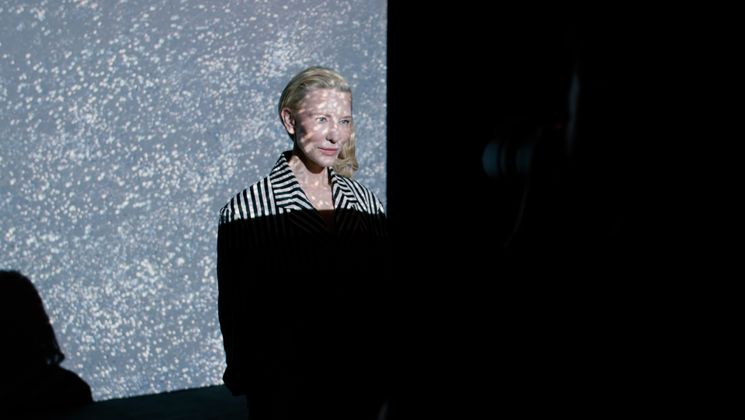
Maïwenn: “Childhood, fatherhood and motherhood are the common threads that run through my films”

The team from Polisse (Poliss), in Competition, turned out in force for the press conference. Maïwenn was joined by her producer, Alain Attal, and by eleven of the film’s actors: Emmanuelle Bercot (who was also co-scriptwriter), Karine Viard, Joeystarr, Marina Foïs, Nicolas Duvauchelle, Karole Rocher, Frédéric Pierrot, Arnaud Henriet, Naidra Ayadi, Jérémie Elkaim, and Sandrine Kiberlain.
Inspiration for the film and Maïwenn’s research in the Child Protection Unit
Maïwenn: “It’s the passion of police officers and the weapons they make to protect themselves against human depravity that made me want to make this film. I am fascinated by anything to do with children. Childhood, fatherhood and motherhood are the common threads that run through my films.”
Maïwenn: “During my research period, I witnessed a paedophile being brought to face a 16 year old teenage girl who he had abused ten years previously. The girl told the whole story and the accused confessed that what she said was true, word for word. And that day I saw something incredible. Her whole body was trandsformed: her body, her hair, her skin.”
On children
Maïwenn: “During filming, I promised the Social Services that I would only include material that had been written and approved by the Social Services, and I respected that. Scenes involving children were carefully considered and supervised (by a psychologist and an inspector from Social Services).”
On the character played by Maïwenn
Maïwenn: “I wanted a character who was close to my role as director. But in the end, the very introverted character I played lacked the energy you need to direct a film. It was a casting mistake (laughs).”
Actors’ impressions of the police
Jérémie Elkaïm: “The time we spent with former Child Protection Officers really changed how I see the world. It makes you realise that stuff could be going on in any house. I saw everything through the prism of rape and paedophilia.”
On improvising
Maïwenn: “I am obsessed by the truth. If actors keep to the script and it sounds true, I leave it. If it feels like they are just waiting their turn and they aren’t listening to each other, I ask them to improvise, or I whisper something in one of their ears to throw the other off.”
Maïwenn’s method as seen by the actors
Sandrine Kiberlain: “In other films, there’s a whole ceremony, a way of doing things: you practice the scene a bit, then its lights, camera, action. With Maïwenn, there’s none of that normal division between acting and rehearsing. You don’t know when it’s going to start or when it will stop. To begin with, I was thinking, ‘What is this all about’, but after a while I found it helpful.”
Marina Foïs: “She isn’t interested in what we know. It’s a chance for us as actors to do something different.”
How Emmanuelle Bercot has influenced Maïwenn and vice versa
Maïwenn: “I love her cinema, her very structured way of thinking. Also, she went to FEMIS film school, whereas I left school when I was 13. She has helped me a lot with her discipline and organisation. Now I can’t imagine working without her.”
Emmanuelle Bercot: “She brings her incredible freedom and complete lack of convention. She is about constant movement. Everything can always change. And when she has an idea, she acts on it straight away. It’s very refreshing.”
Report by B. de M.


